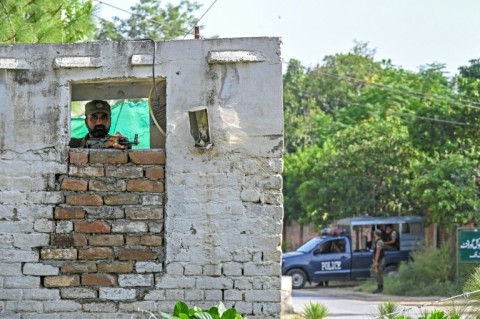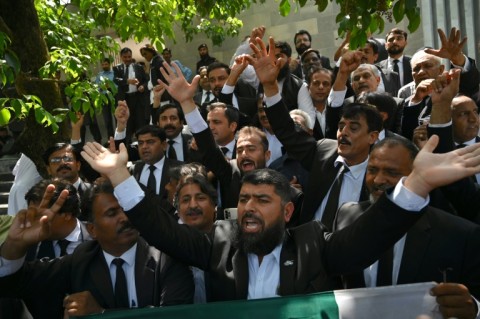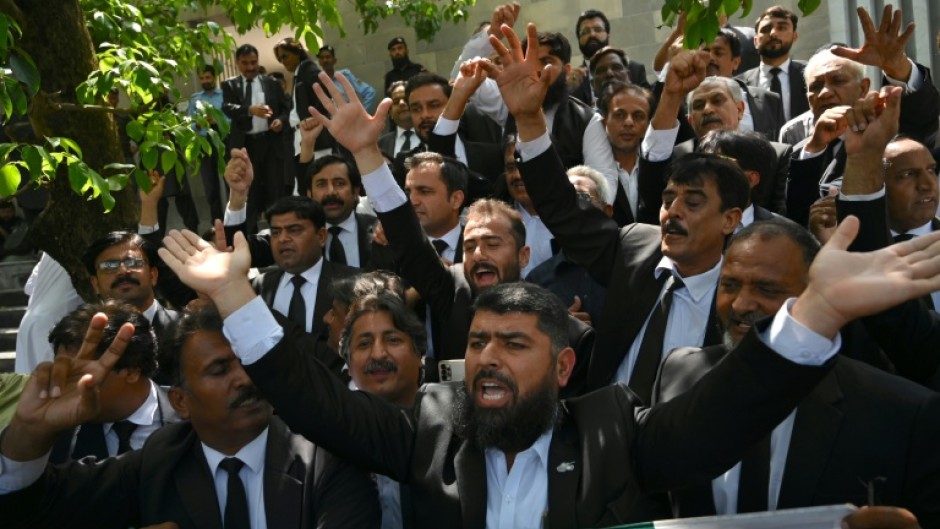ISLAMABAD - Former Pakistan prime minister Imran Khan remained in prison on Tuesday despite his graft conviction being suspended, his lawyers said, claiming that a "manipulation of justice" was keeping him behind bars.
Khan's Pakistan Tehreek-e-Insaf (PTI) party said the Islamabad High Court overturned a lower court's decision to jail him for three years, a judgment that kept him from contesting upcoming elections.
His lawyers said he was granted bail and they were initially hopeful he would be released from Attock Jail, a century-old prison around 60 kilometres west of Islamabad, where the 70-year-old has been held for three weeks.
However, they said on Tuesday afternoon Khan remained in detention because of a previous arrest, made in secret, over a case alleging he had leaked classified state documents.
One of his lawyers told reporters outside the prison, which was surrounded by patrolling police units, that Khan was "on judicial remand" and would appear before a special court in Islamabad on Wednesday.
"He was arrested prior to today's court ruling. The exact date of his arrest remains unclear," another lawyer, Gohar Khan, told AFP by phone.
Another, Muhammad Shoaib Shaheen, said "his legal team was intentionally left uninformed and kept in the dark".
"This constitutes a manipulation of justice," he said.
- 'Countless devotees' -

Khan's three-year sentence was handed down this month by a judge who found him guilty of failing to properly declare gifts he received while in office.
That was only one of more than 200 legal cases that have embroiled Pakistan's most popular politician since he was ousted by a parliamentary vote last year.
Khan, a former cricket star, has also been previously denied bail in at least nine other cases, including three in anti-terrorism courts and six in the district courts in Islamabad.
Rights monitors say authorities use vexing and repetitive legal proceedings as a tactic to quash dissent in Pakistan.
Pro-PTI lawyers chanted "Release Imran Khan!" and "Khan your devotees are countless!" outside court as initial news of his sentence suspension broke.
The party later said nine activists had been arrested outside Attock Jail.
- Khan behind bars -

The charismatic Khan claims his ousting and subsequent legal cases have been orchestrated by the powerful military establishment to deny him a second term.
Khan was also briefly jailed on graft charges in May, sparking days of civil unrest, but since then his PTI party has been targeted by a major crackdown that has vastly diminished his street power and seen most of his senior leadership jump ship or be locked away.
Islamabad said it was targeted by "anti-state" violence during the backlash over that arrest.
But rights groups say authorities used overly broad anti-terror laws to suppress PTI, while the domestic media reported pressure to censor or smear Khan on the airwaves.
While Khan was imprisoned this month, Pakistan's parliament was dissolved at the request of his successor Shehbaz Sharif to pave the way for a caretaker government that will usher in elections.
No date for the polls has been announced.
Khan surged to power in 2018 on a wave of popular support, an anti-corruption manifesto and the backing of the powerful military establishment.
When he was ousted in April 2022, analysts said it was because he lost the support of the same generals who handed him the keys to power.
He was replaced by a shaky coalition of the dynastic parties that have historically ruled Pakistan.
But, as an opposition politician, he waged an unprecedented campaign against the influential generals, who have staged at least three successful coups leading to decades of martial law.
By Zain Zaman Janjua

